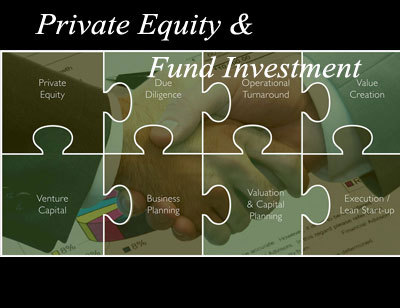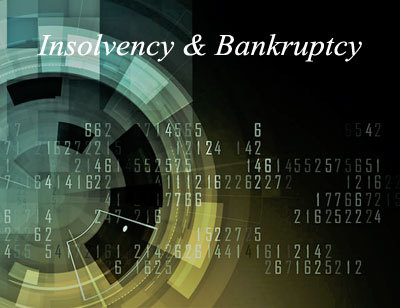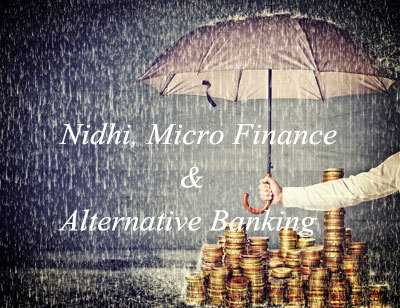#Blockchain Technology in Banking
Explore tagged Tumblr posts
Text
Innovative Horizons: Trends Redefining Crypto Wallet Development in 2024
Layer 2 Scaling Solutions: Innovations like Lightning Network and Plasma are making transactions faster and cheaper on existing blockchains.
Interoperability: Bridging different blockchain networks allows seamless asset transfers and service utilization across various DeFi ecosystems.
Privacy-Focused Protocols: With growing concerns over data privacy, the demand for wallets with enhanced privacy features such as zero-knowledge proofs and confidential transactions is on the rise.
NFT Integration: Non-fungible tokens (NFTs) are gaining popularity, and wallets are adapting to support their storage, transfer, and management.
Decentralized Identity Solutions: Wallets are evolving to include decentralized identity features, enabling users to control and manage their digital identities securely.
In this dynamic landscape, Codezeros stands out as a leader in cryptocurrency wallet development. With expertise in security, usability, and customization, Codezeros offers tailored solutions to meet the diverse needs of users. Whether you're looking to build a new wallet or enhance an existing one, Codezeros' team of experts is ready to help. Take control of your digital assets with confidence – choose Codezeros for cutting-edge wallet development services today! https://www.codezeros.com/wallet-development-company
#crypto wallets#cryptowalletdevelopment#blockchain technology in banking#dapp development#blockchain development company#nftcommunity#defi
0 notes
Text
Role of Blockchain Technology in Banking Industry
Are you ready to explore the game-changing impact of Blockchain Technology in banking? Join us as we move into a world of secure transactions, improved transparency, and increased productivity in the banking industry. Find out how Blockchain Technology in banking is reshaping financial services and opening up new opportunities. Stay ahead of the curve and unlock the future of finance with our insightful blog post! Read more: Role of Blockchain Technology in Banking Industry

#Blockchain in Banking#blockchain solutions#blockchain technology#Blockchain Technology in Banking#Benefits of Blockchain Technology#Blockchain Technology in Banking Industry#Evolution of Blockchain Technology#Use Cases of Blockchain Technology#Blockchain Development Company
0 notes
Text
#blockchain technology#blockchain technology upsc#blockchain technology meaning#blockchain technology ppt#blockchain technology courses#blockchain technology in hindi#blockchain technology pdf#blockchain technology in tamil#blockchain technology in banking#blockchain technology definition#blockchain 4.0 technology#blockchain technology 101#blockchain technology 2023#blockchain technology 3.0#blockchain technology 8nv#blockchain technology 90s#blockchain technology books#blockchain technology gfg#blockchain technology mcq#blockchain technology uses#xrp blockchain technology#blockchain technology applications#blockchain technology example#blockchain technology features#blockchain technology history#blockchain technology javatpoint#blockchain technology language#blockchain technology overview#blockchain technology projects#blockchain technology tutorial
1 note
·
View note
Text
Wonderpay Your Trusted Payment Gateway With Instant Settlement And Free UPI Collection
Wonderpay offers Instant payment solutions across the country. This is very crucial for any business that aims to expand their reach for improving customer experiences. It also enhances the security of your payments with a minimum transaction cost. Our payment gateway supports a vast array of transactions, which makes it easier to manage financial transactions for all types of small e-commerce stores to large multinational corporations.
#payments#fintech#business#paymentsolutions#ecommerce#paymentprocessing#creditcardprocessing#money#merchantservices#finance#banking#bitcoin#payment#smallbusiness#pos#mobilepayments#pointofsale#paymentgateway#cryptocurrency#creditcards#crypto#blockchain#creditcard#technology#possystem#cash#onlinepayments#retail#digitalpayments#marketing
3 notes
·
View notes
Text


















Equi Corp Legal has the best lawyers in Delhi NCR
#Corporate Disputes Litigation Lawyers in Delhi#Insolvency Bankruptcy NCLT Lawyers in Delhi#Private Equity Funds Investment Transaction Advisory M&A Lawyers in Delhi#Technology E-Commerce Fintech Blockchain Lawyers in Delhi#Regulatory Compliance Legal Audits in Delhi Noida#Director Investor Shareholder Dispute Litigation Lawyers in Delhi#Sports Gaming lawyers in Delhi#Startup Investor Lawyers in Delhi#Banking NBFC Financial Services DRT Debt Restructuring Lawyers in Delhi#Corporate lawyers in Delhi#Arbitration Lawyers in Delhi#Consumer Protection Lawyers in Delhi#Commercial Civil Disputes Litigation Lawyers in Delhi
10 notes
·
View notes
Text
Can Blockchain Technology Improve Personal Loan Approvals?

The financial sector is rapidly evolving with new technologies, and blockchain is one of the most promising innovations transforming the personal loan industry. Traditionally, loan approvals have been time-consuming, requiring manual document verification, credit score analysis, and financial background checks. Blockchain technology is changing this by making the process faster, more secure, and more transparent.
With blockchain, lenders can streamline identity verification, enhance credit risk assessment, and prevent fraud, making personal loans more accessible and efficient. In this article, we explore how blockchain is improving loan approvals and why it could be the future of digital lending.
🔗 For hassle-free personal loan applications, visit FinCrif Personal Loan.
1. How Blockchain Enhances Loan Approvals
Faster and More Reliable Identity Verification
One of the biggest hurdles in personal loan approvals is verifying a borrower’s identity. Traditional Know Your Customer (KYC) processes require applicants to submit documents such as Aadhaar, PAN, and bank statements, which banks manually verify. This process can take several days, causing delays.
Blockchain eliminates redundant verification by storing identity records in a tamper-proof, decentralized ledger. Once an identity is verified and recorded on the blockchain, it can be accessed by lenders instantly, reducing processing time and ensuring authenticity.
Alternative Credit Scoring for Faster Loan Approvals
Many individuals struggle to get personal loans due to a lack of credit history or low CIBIL scores. Traditional lenders primarily rely on credit bureau scores, which do not always provide a complete picture of a borrower's financial behavior.
Blockchain allows lenders to use alternative data sources, such as utility bill payments, mobile phone transactions, and online spending patterns, to assess creditworthiness. This makes personal loans accessible to self-employed individuals, gig workers, and those without a strong credit history.
Automated Loan Processing with Smart Contracts
A smart contract is a self-executing agreement stored on a blockchain that automatically enforces the terms of a loan when certain conditions are met. These contracts eliminate the need for human intervention, making loan approvals much faster.
For example, once a borrower's identity and financial records are verified, a smart contract can instantly approve the loan and trigger fund disbursement. This removes bureaucratic delays, helping borrowers access funds within minutes instead of days.
2. Improved Security and Fraud Prevention
Prevention of Identity Theft and Fake Applications
One of the biggest challenges in personal lending is fraud. Many loan scams involve forged documents, fake identities, or manipulated financial records. Blockchain prevents fraud by ensuring that all transactions and data entries are permanent, transparent, and tamper-proof.
Lenders can verify borrower details on a shared blockchain network, making it impossible for fraudsters to manipulate loan applications. This enhances trust and reduces the risk of defaults.
Eliminating Credit Report Manipulation
In the current system, borrowers can sometimes manipulate their credit reports by temporarily improving their credit utilization before applying for a loan. Blockchain stores real-time financial data, making it impossible to alter past records. This ensures that lenders always have an accurate financial picture of borrowers, reducing lending risks.
3. Faster Loan Disbursement with Blockchain
In traditional lending, once a loan is approved, it may take several days for funds to be transferred due to interbank processes and verification checks. Blockchain speeds up disbursal by enabling direct peer-to-peer transactions without intermediary banks.
With blockchain-based digital wallets, borrowers can receive loan amounts instantly after approval, making it a game-changer for emergency loans and urgent financial needs.
🔗 Looking for a quick loan disbursal? Explore FinCrif Personal Loan.
4. Transparency and Reduced Loan Processing Costs
Lower Processing Fees for Borrowers
Loan processing involves multiple intermediaries, such as credit bureaus, third-party verifiers, and bank officers, each adding costs that are passed on to borrowers. Blockchain eliminates many of these middlemen by automating verification and reducing paperwork.
This leads to lower processing fees and better interest rates, making personal loans more affordable.
Complete Transparency in Loan Terms
Many borrowers struggle with hidden charges, fluctuating interest rates, and complex loan agreements. Blockchain ensures absolute transparency by recording all loan terms on an immutable ledger. Borrowers can access their loan history, EMI schedules, and outstanding balances without worrying about unexpected changes in loan conditions.
5. Challenges in Implementing Blockchain for Personal Loans
Despite its advantages, blockchain adoption in personal lending faces challenges, including regulatory concerns and technical barriers.
Regulatory Uncertainty: Many governments are still developing policies on blockchain-based lending, which slows adoption.
Integration with Existing Banking Systems: Most financial institutions operate on centralized databases, making integration with decentralized blockchain networks complex.
User Awareness: Many borrowers are unfamiliar with blockchain technology and may hesitate to trust a fully automated loan approval system.
However, as blockchain regulations become clearer and financial institutions invest in digital transformation, these challenges are expected to decrease.
6. The Future of Blockchain in Personal Loan Approvals
As blockchain technology continues to evolve, it will play an even bigger role in making personal loans more accessible, secure, and efficient. Some expected advancements include:
Instant Global Loan Access: Borrowers will be able to apply for and receive loans across borders without waiting for traditional bank approvals.
AI and Blockchain Integration: Combining artificial intelligence with blockchain will further enhance loan approvals by analyzing borrower behavior in real-time.
Decentralized Lending Platforms: More peer-to-peer (P2P) lending models will emerge, allowing borrowers to connect directly with lenders, bypassing traditional banks.
🔗 Be part of the future of lending! Explore AI-powered loan solutions at FinCrif Personal Loan.
Blockchain technology has the potential to redefine personal loan approvals by making them faster, more transparent, and secure. By reducing reliance on credit bureaus, enabling instant identity verification, and preventing fraud, blockchain can improve financial accessibility for millions of borrowers.
While challenges remain, the future of personal lending is increasingly digital. As blockchain adoption grows, borrowers can expect lower costs, faster approvals, and a more efficient lending experience.
For a seamless and secure personal loan application, visit FinCrif Personal Loan and explore the latest AI-driven financial solutions.
#Blockchain in personal loans#Blockchain loan approval#Blockchain technology in lending#Personal loan blockchain#Faster loan approvals with blockchain#Blockchain-based lending#Secure loan processing#Decentralized lending platforms#Smart contracts for loans#Instant loan approvals#How blockchain improves lending#Blockchain in financial services#Digital lending with blockchain#Alternative credit scoring with blockchain#AI and blockchain in loans#Fraud prevention in personal loans#Transparent loan processing#Peer-to-peer lending blockchain#Future of blockchain in banking#Secure identity verification for loans#finance#loan apps#personal loans#loan services#personal loan#fincrif#personal loan online#nbfc personal loan#bank#personal laon
0 notes
Text
How Cryptocurrency is Disrupting Traditional Banking: Opportunities and Threats

Cryptocurrency, once a niche digital asset primarily associated with speculative investments, has rapidly evolved into a disruptive force in the world of finance. Today, it is challenging the traditional banking system in ways that were previously unimaginable. As the adoption of the currency continues to grow, financial institutions, businesses, and consumers are experiencing both the opportunities and the threats it presents. For C-suite executives, entrepreneurs, and managers, understanding the implications of cryptocurrency on traditional banking is crucial to navigating this new landscape and capitalizing on emerging trends.
The Rise of Cryptocurrency: A Challenge to Centralized Banking
At the heart of cryptocurrency's disruptive power lies its decentralized nature. Traditional banks operate within a highly regulated, centralized financial system, where institutions control the flow of money, issue loans, and act as intermediaries for transactions. In contrast, cryptocurrencies like Bitcoin, Ethereum, and others operate on decentralized networks powered by blockchain technology. This allows for peer-to-peer transactions without the need for intermediaries like banks or payment processors.
The currency’s decentralized nature challenges the core structure of traditional banking by offering a system that bypasses central authorities. This offers both advantages and challenges to businesses and financial institutions that have long been the gatekeepers of financial transactions.
Opportunities: The Potential Benefits of Cryptocurrency to the Financial Sector

1.Lower Transaction Costs
One of the most significant advantages of cryptocurrency over traditional banking is the potential to drastically reduce transaction costs. Digital currency transactions often have lower fees compared to traditional banking services, especially for cross-border payments. While banks and payment providers charge fees for currency exchange, wire transfers, and international remittances, it eliminates many of these intermediaries, offering a more direct and cost-effective method for transferring value across borders.
For businesses, this can translate into significant savings, especially for global transactions or sending payments to remote markets. Reducing transaction costs also increases efficiency, benefiting startups and SMEs that rely on frequent, low-cost payments.
2.Increased Financial Inclusion
This currency has the potential to revolutionize financial inclusion, particularly in emerging markets. In many parts of the world, a large segment of the population lacks access to traditional banking services due to infrastructural challenges or the high costs of opening and maintaining a bank account. However, cryptocurrencies can be accessed via smartphones, meaning that anyone with an internet connection can participate in the global economy.
For businesses looking to expand into underbanked regions, cryptocurrencies offer a viable solution to overcome barriers to entry. Entrepreneurs can use this currency as a way to provide financial services in regions where traditional banking infrastructure is lacking.
3.Faster and More Secure Transactions
These transactions are often faster and more secure than traditional banking methods. With the use of blockchain technology, transactions are verified and recorded in a decentralized ledger, ensuring transparency and reducing the risk of fraud. Additionally, these currency transactions can occur in real-time, eliminating the need for the multi-day processing delays associated with traditional bank transfers.
For businesses, the ability to conduct faster, secure transactions offers enhanced operational efficiency, reduced delays, and improved cash flow management.
4.Smart Contracts and Automation
Another area where cryptocurrency is transforming finance is through the use of smart contracts. These self-executing contracts are built into blockchain platforms like Ethereum and automatically execute terms when certain conditions are met. In the traditional banking system, businesses rely on legal intermediaries and lengthy paperwork processes for contract enforcement, which can be costly and time-consuming.
Smart contracts eliminate the need for intermediaries, enabling businesses to streamline operations and reduce administrative overhead. This technology holds the potential to revolutionize industries such as real estate, insurance, and supply chain management by automating processes and increasing transparency.
Threats: The Risks and Challenges of Cryptocurrency for Traditional Banks

1.Disintermediation of Financial Institutions
At the heart of digital currency's disruptive potential is its ability to bypass traditional financial intermediaries. For centuries, banks have acted as trusted middlemen in financial transactions, ensuring that money moves securely and efficiently between parties. The currency, by design, allows individuals to conduct transactions directly without the need for banks as intermediaries.
This poses a direct threat to the traditional banking model. For example, decentralized finance (DeFi) applications, which leverage virtual currency and blockchain technology, allow individuals to lend, borrow, and trade digital assets without relying on banks. As DeFi protocols gain traction, financial institutions may see a decline in their role in facilitating lending, payments, and other core services.
2.Regulatory and Compliance Challenges
The decentralized nature of the currency presents significant regulatory challenges for governments and financial authorities. While cryptocurrencies offer a more open and global financial system, their lack of central control makes it difficult to enforce regulations such as anti-money laundering (AML) and know-your-customer (KYC) requirements. Banks are highly regulated institutions, required to meet strict standards to ensure compliance with local and international laws.
Cryptocurrency’s anonymity and global reach pose a potential threat to these regulatory frameworks. Financial institutions may face increased pressure to adapt to the growing prominence of digital currency, requiring them to implement more sophisticated compliance systems. However, navigating the regulatory landscape of digital currency remains a significant hurdle, particularly for businesses operating in multiple jurisdictions.
3.Volatility and Uncertainty
While the currency has seen significant growth in value over the past decade, its inherent volatility remains one of the biggest concerns for both consumers and financial institutions. The value of cryptocurrencies like Bitcoin can fluctuate wildly within short periods, making them a risky asset for businesses to hold or use for transactions.
For traditional banks, the volatility of cryptocurrency presents a challenge to their conservative approach to risk management. Many financial institutions are reluctant to adopt it on a large scale due to the unpredictability of its value. For consumers, the uncertainty surrounding the future value of cryptocurrencies can also be a deterrent, preventing widespread adoption.
4.Cybersecurity and Fraud Risks
Cryptocurrencies, while built on secure blockchain technology, are still susceptible to cybersecurity threats. Hacks, fraud, and theft remain significant risks for both individuals and businesses. In the past, high-profile exchanges and wallets have been targeted by cybercriminals, leading to substantial losses for investors and businesses.
Traditional banks are heavily invested in cybersecurity and fraud prevention systems, which may be more robust than those in the cryptocurrency space. As digital currency adoption grows, ensuring the safety of digital assets will become increasingly important. Financial institutions that fail to address these concerns could face reputational damage, regulatory penalties, and financial losses.
How Traditional Banks Can Respond to the Cryptocurrency Disruption?

Rather than viewing such currencies solely as a threat, many banks are beginning to explore ways to incorporate blockchain and virtual currency into their business models. Some banks are offering virtual currency-related services such as trading platforms, custodial services, and blockchain-based payment systems.
In addition, some financial institutions are investing in blockchain technology to improve their own internal operations, enhance security, and streamline payments. By embracing innovation and working within this currency ecosystem, banks can remain competitive in a rapidly changing financial landscape.
Conclusion
This currency is undoubtedly reshaping the financial world, presenting both tremendous opportunities and significant challenges for traditional banking. While its decentralized nature offers lower transaction costs, increased financial inclusion, and new ways to conduct secure transactions, it also poses risks in terms of disintermediation, regulatory challenges, volatility, and cybersecurity threats.
For C-suite executives, startup entrepreneurs, and managers, the key to thriving in this new environment lies in embracing the opportunities these currencies present while carefully managing its risks. Understanding the disruptive potential of virtual currency and adapting to its evolving landscape will be crucial for businesses looking to remain competitive in the future of finance.
Uncover the latest trends and insights with our articles on Visionary Vogues
0 notes
Text
TONE Multimedia Group LLC and Black Stone Marketing.
TONE Multimedia Group LLC and Black Stone Marketing & Consulting LLC Launch Partnership to Transform Digital Payments with Advanced TONE Technology and TROPTIONS PAY Processing
Boca Raton, FL — November 4, 2024 — TONE Multimedia Group LLC and Black Stone Marketing & Consulting LLC are excited to announce a strategic partnership aimed at reshaping the future of digital payments and advertising. Combining TONE’s cutting-edge data technology with the powerful TROPTIONS PAY digital currency processing platform, this collaboration is valued at an estimated $5 billion and promises a new era in seamless, data-driven payment experiences enriched by integrated advertising benefits.
Driving Innovation in Digital Payments and Advertising
This alliance brings together TONE’s pioneering multimedia technology—renowned for transforming data delivery—with the secure and efficient TROPTIONS PAY platform, which has earned the reputation as the “American Express of crypto.” Together, they aim to deliver a payment system that not only enhances speed and security but also rewards consumers through targeted digital promotions in real time.
Enhanced Benefits for Consumers
With TONE technology integrated into TROPTIONS PAY, consumers will experience:
Smooth, Integrated Payments and Advertising: TROPTIONS PAY users will enjoy a streamlined payment process that includes automated, targeted ads to maximize rewards and discounts.
Instant Discounts and Loyalty Rewards: At the point of sale, users will have access to exclusive digital discounts and loyalty benefits, creating a dynamic, cost-saving engagement with each purchase.
Enhanced Security and Data Processing: TONE’s advanced data technology will optimize transaction speed and security within the TROPTIONS PAY system, ensuring a reliable, user-friendly experience.
Redefining the Consumer Payment Experience
This partnership between TONE Multimedia Group and Black Stone Marketing & Consulting is expected to establish a new benchmark for digital transactions, merging state-of-the-art technology with the advantages of blockchain-powered currency. Together, they are setting the stage to transform consumer engagement with digital payments in the U.S. and worldwide.
“This partnership is a milestone for both our companies and for the digital payments industry,” said representatives of TONE Multimedia Group LLC. “With TONE’s technology and TROPTIONS PAY’s strong reputation in digital currency processing, we’re positioned to deliver an experience that makes payments more efficient and rewarding.”
About TONE Multimedia Group LLC
TONE Multimedia Group LLC leads in technological innovation, specializing in data delivery, media, and advertising solutions. Committed to advancing tech-driven business services, TONE consistently aligns with industry trends to enhance consumer engagement and optimize business outcomes.
About Black Stone Marketing & Consulting LLC
Black Stone Marketing & Consulting LLC is a trailblazer in marketing strategy, integrating technology to elevate business processes. As the developer behind TROPTIONS PAY, Black Stone offers a secure and reliable token payment solution that is accepted at over 480,000 major retail locations across the country, available through the Givbux Super App.
Contact Information: [email protected]
#cryptocurrency#marketing#crypto casino#cryptocurreny trading#blockchain#troptionsgold#cryptonews#cryptoworld#crypto#toptionspay#money#financing#processing#tickets#technology#bank#customer service
0 notes
Text
Build the Future of Gaming with Crypto Casino Development Solutions

#In a world where innovation drives the gaming industry#the rise of crypto casino game development is reshaping the way players and developers think about online gambling. This is because blockch#allowing developers and entrepreneurs to create immersive#secure#and decentralized casino experiences in unprecedented ways. This is not a trend; it's here to stay.#The Shift towards Crypto Casinos#Imagine a world that could be defined by transparency#security#and accessibility for your games. That's precisely what crypto casino game development is trying to bring to the table. Traditionally#online casinos have suffered because of trust issues and minimal choices for payment options. This changes with blockchain technology and c#Blockchain in casino games ensures that all transactions are secure#transparent#and tamper-proof. Thus#players can check how fair a game is#transfer money into and out of the account using cryptocurrencies#and maintain anonymity while playing games. It is not only technologically different but also culturally. This shift appeals to a whole new#What Makes Crypto Casino Game Development Unique?#Crypto casino game development offers features that set it apart from traditional online casinos. Let’s delve into some of these groundbrea#Decentralization and TransparencyBlockchain-powered casinos operate without centralized control#ensuring all transactions and game outcomes are verifiable on a public ledger. This transparency builds trust among players.#Enhanced SecurityWith smart contracts automating processes and blockchain technology securing transactions#crypto casinos significantly reduce the risk of hacking and fraud.#Global AccessibilityCryptocurrencies break the barriers that traditional banking systems have#making it possible for players from around the world to participate without having to think about currency conversion or restricted regions#Customizable Gaming ExperiencesDevelopers can customize crypto casino platforms with unique features such as NFT rewards#tokenized assets#and loyalty programs#making the game more interesting and personalized.#Success Story of Real Life#Crypto casino game development has already brought about success stories worldwide. Among them
0 notes
Text
The Promising Future of DeFi Yields: Surpassing Traditional US Money Funds
In recent years, the Decentralized Finance (DeFi) sector has witnessed exponential growth. As a result, experts predict that DeFi yields could surpass traditional US money funds. These projections come at a time when the Federal Reserve is expected to cut interest rates, which could significantly boost the DeFi market. This article delves into the reasons behind these projections, providing key…
#Aave#Bernstein analysis#blockchain#blockchain finance#blockchain technology#crypto economy#Crypto Investments#crypto market#crypto markets#crypto staking#crypto wealth#crypto yields#decentralized applications#decentralized assets#decentralized banking#decentralized borrowing#decentralized economy#decentralized exchanges#decentralized finance#decentralized finance growth#decentralized finance risks#decentralized finance trends#decentralized governance#decentralized lending#decentralized networks#decentralized protocols#decentralized wealth#DeFi#DeFi adoption#DeFi ecosystem
0 notes
Text
#central bank digital currency#crypto currency wallet#blockchain technology in banking#CBDCs vs Cryptocurrencies
0 notes
Text
Digital Currencies in 2024: The Future of Money and Technology

Description
Digital currencies, often referred to as cryptocurrencies, have revolutionized the financial landscape. As we move into 2024, their influence continues to expand, reshaping everything from international trade to individual financial empowerment. In this article, we’ll explore the evolution of digital currencies, highlight their most prominent features, and delve into the future trends that could shape the world of finance
Understanding Digital Currencies
Digital currencies are decentralized, internet-based forms of money that use cryptographic technology to ensure secure, peer-to-peer transactions. Unlike traditional fiat currencies controlled by central banks, cryptocurrencies such as Bitcoin, Ethereum, and Ripple (XRP) operate on blockchain technology—a transparent ledger that records all transactions.
The Rise of Bitcoin and Altcoins
Bitcoin, introduced in 2009, is the first and most widely known cryptocurrency, often dubbed “digital gold.” Over the years, Bitcoin has grown in both value and adoption, serving as a store of value and an investment vehicle.
Other digital currencies, called altcoins, have emerged to challenge Bitcoin's dominance. Ethereum, for instance, introduced smart contracts that automate processes and revolutionized decentralized applications (DApps). In 2024, DeFi (Decentralized Finance) and NFTs (Non-Fungible Tokens), primarily built on Ethereum, continue to attract attention, reshaping the way digital assets are traded and owned
"Unlock your next big opportunity—click the link now and take the first step toward success!"
Top Benefits of Digital Currencies
Digital currencies offer several advantages over traditional financial systems, making them an appealing choice for both investors and everyday users.
Decentralization: Cryptocurrencies are not controlled by any government or financial institution. This ensures users have full control over their assets and are not subject to centralized authorities.
Security: Blockchain technology makes it extremely difficult to alter transaction records, providing a high level of security against fraud and hacking.
Low Transaction Costs: Traditional cross-border payments often involve high fees, especially for international transfers. Cryptocurrencies offer much lower transaction fees, making them attractive for global transactions.
Financial Inclusion: Digital currencies provide access to financial services for people without access to traditional banking. In 2024, millions of unbanked individuals globally are benefiting from using digital wallets and decentralized platforms.
The Most Popular Cryptocurrencies in 2024
In addition to Bitcoin and Ethereum, several other cryptocurrencies are making waves in 2024, including:
Ripple (XRP): Known for its efficient cross-border payment solutions.
Cardano (ADA): Gaining popularity due to its focus on sustainability and scalability in blockchain technology.
Solana (SOL): A fast, scalable platform for decentralized apps and crypto services.
Polygon (MATIC): Enhancing Ethereum’s scalability and enabling cheaper transactions
"Unlock your next big opportunity - click the link now and take the first step towards success!"
The Role of Central Bank Digital Currencies (CBDCs)
Another significant trend in 2024 is the rise of Central Bank Digital Currencies (CBDCs). Unlike decentralized cryptocurrencies, CBDCs are issued and regulated by central banks. Governments across the globe are now exploring their own digital currencies to improve financial efficiency, transparency, and inclusivity. Countries like China with its Digital Yuan, and the European Union with the Digital Euro, have made substantial progress.
CBDCs aim to combine the benefits of cryptocurrency—such as faster, cheaper transactions—with the security and stability of traditional fiat currencies.
Key Trends for Digital Currencies in 2024
As digital currencies continue to evolve, here are some of the key trends shaping their future:
Mass Adoption: In 2024, businesses and institutions worldwide are increasingly accepting cryptocurrencies as a legitimate form of payment, with more retailers integrating crypto-payment solutions.
Web3 and Decentralized Apps (DApps): With the growth of Web3, digital currencies are playing a crucial role in decentralized applications, creating new ways for users to interact with the internet, without intermediaries.
Regulation: Governments are paying more attention to regulating cryptocurrencies, ensuring consumer protection while promoting innovation in the space.
Sustainability Initiatives: The environmental impact of cryptocurrency mining has been a concern, but newer cryptocurrencies like Cardano and Solana are making strides in energy-efficient blockchain solutions
"Unlock your next big opportunity - click the link now and take the first step towards success!"
The Future of Digital Currencies
Looking ahead, digital currencies are likely to continue their upward trajectory, integrating further into everyday life. We can expect advancements in privacy coins like Monero (XMR), which prioritize user anonymity, and growth in interoperability between different blockchain platforms.
Another development to watch in 2024 is the expansion of tokenization, where real-world assets like real estate, stocks, and commodities are being digitized and traded on blockchain platforms.
Investing in Cryptocurrencies in 2024
For investors, digital currencies offer both opportunities and risks. The cryptocurrency market is known for its volatility, but long-term believers view it as a hedge against inflation and a chance to participate in the future of finance. Experts advise diversifying one’s portfolio, researching projects carefully, and staying informed about regulatory changes.
Conclusion
Digital currencies are more than just a trend—they represent a fundamental shift in how we perceive and use money. As we move through 2024, the continued development of blockchain technology, increased adoption of cryptocurrencies, and the integration of digital assets into financial systems will shape the future of the global economy.
For those looking to stay ahead, understanding the potential of digital currencies, exploring opportunities for investment, and adapting to this fast-evolving world are key steps to navigating the new financial landscape
"Unlock your next big opportunity - click the link now and take the first step towards success!"
#cryptocurrency#bitcoin#Ethereum#Blockchain technology#Decentralized finance (DeFi)#Central Bank Digital Currency (CBDC)#Digital wallet#Smart contracts#altcoins#tokenization#web3#DeFi applications#nfts#Crypto regulation#Cryptocurrency exchange
0 notes
Text
Against Britcoin and The Digital Pound
As the digital age advances, the concept of money is evolving beyond physical coins and banknotes into the realm of digital currencies. One such development is the proposed "Britcoin," a digital version of the British pound. While this initiative promises to bring convenience and modernity to financial transactions, it also raises significant concerns. It's crucial to scrutinise the implications of Britcoin and advocate for a cautious approach to its adoption.
What is Britcoin?
Britcoin, the proposed digital pound, is envisioned as a state-backed digital currency, aiming to complement physical cash and existing digital payment systems. This initiative is part of a broader trend where countries are exploring central bank digital currencies (CBDCs) to streamline monetary transactions, reduce costs, and provide a government-backed alternative to cryptocurrencies like Bitcoin.
The Promised Benefits
Proponents of Britcoin highlight several potential benefits:
Efficiency and Speed: Digital transactions can be executed instantly, improving the efficiency of financial operations for both consumers and businesses.
Financial Inclusion: Britcoin could offer financial services to unbanked or underbanked populations, providing them access to secure and efficient payment methods.
Reduced Costs: Digital currency can potentially lower the costs associated with printing, storing, and transporting physical money.
Enhanced Security: With advanced encryption and blockchain technology, digital currencies can offer robust security against fraud and counterfeiting.
The Concerns
Despite these advantages, the introduction of Britcoin raises several red flags:
Privacy Issues: Digital currencies are inherently traceable, which could lead to increased surveillance of financial transactions by the state. This threatens individual privacy and could be misused for unwarranted tracking of personal spending habits.
Centralization Risks: The control of Britcoin by a central authority, such as the Bank of England, centralizes financial power, potentially leading to misuse or policy decisions that may not reflect the best interests of the public.
Cybersecurity Threats: As a digital entity, Britcoin would be susceptible to cyberattacks. A breach could have catastrophic consequences, destabilizing the financial system and leading to significant economic losses.
Technological Dependence: A move towards digital currency increases dependence on technology and infrastructure. In cases of technical failures or power outages, access to money could be disrupted, affecting daily life and business operations.
Economic Inequality: While intended to promote financial inclusion, Britcoin could exacerbate existing inequalities if its implementation doesn't consider those without access to digital technologies or the internet.
The Need for Vigilance
Given these potential drawbacks, it's imperative to approach Britcoin with caution. Here's how we can advocate for a balanced and thoughtful consideration of this digital currency:
Demand Transparency: Push for clear and transparent communication from the government and financial institutions about the development and implementation of Britcoin. Public consultations and debates should be encouraged to address concerns and gather diverse viewpoints.
Privacy Protections: Insist on robust privacy measures to ensure that users' financial data is protected from misuse and unwarranted surveillance. This could involve stringent regulations and oversight mechanisms.
Cybersecurity Measures: Advocate for the highest standards of cybersecurity to safeguard against potential threats. This includes regular audits, risk assessments, and investment in cutting-edge security technologies.
Inclusivity Plans: Ensure that plans for Britcoin include provisions for those without access to digital technologies, such as rural populations and the elderly. This could involve providing alternative methods of access or maintaining physical cash options.
Legal Frameworks: Call for the establishment of comprehensive legal frameworks that govern the use, distribution, and regulation of Britcoin. These frameworks should protect users and ensure the stability of the financial system.
While the advent of Britcoin represents a significant step towards modernizing the financial landscape, it's essential to proceed with caution. By understanding the potential risks and advocating for robust safeguards, we can ensure that the digital pound serves the public interest without compromising privacy, security, or inclusivity. The fight against a hasty and ill-considered rollout of Britcoin is not about resisting progress but about ensuring that progress benefits everyone fairly and equitably.
#Britcoin#Digital Pound#Central Bank Digital Currency#CBDC#Financial Privacy#Digital Currency Risks#Economic Inequality#Financial Inclusion#Monetary Policy#Digital Payments#Cybersecurity#Digital Financial System#Blockchain Technology#Government Surveillance#Financial Regulation#Currency Modernization#Digital Economy#Financial Security#Technological Dependence#Digital Finance Ethics#today on tumblr#new blog
0 notes
Text
Exploring Blockchain Technology

Blockchain technology, the fundamental idea behind cryptocurrencies like Bitcoin, is changing many industries. Initially conceptualized as a decentralized ledger system to facilitate secure digital transactions, its applications have expanded far beyond finance. Blockchain technology has emerged as a revolutionary force, disrupting traditional systems and bringing in a new era of trust and transparency.
Understanding Blockchain Technology
At its core, blockchain technology revolves around a decentralized and distributed ledger system. It is a distributed ledger technology (DLT) that enables secure and transparent record-keeping without the need for intermediaries like banks or governments. A blockchain is a digital ledger comprised of individual blocks. Each block stores a record of transactions and chronologically links to the previous block, forming a continuous chain. Imagine a vast, shared record book, accessible to a network of participants, where every transaction is meticulously documented and chronologically ordered.
This decentralized nature empowers blockchain with several key characteristics:
Immutability
Once a transaction is recorded on a blockchain, it becomes virtually impossible to alter or erase it. Each block in the chain is linked to the previous one using cryptography, creating a tamper-proof audit trail. Any attempt to modify a block would require altering all subsequent blocks, which becomes computationally infeasible on a secure blockchain network. In blockchain, immutability is like having a permanent marker for transactions.
Transparency
All participants on the network can access and verify transactions on the blockchain. This fosters trust and accountability, as every step of a process is visible to all stakeholders. Unlike traditional systems with gatekeepers, blockchains are often public ledgers. Anyone can view the history of transactions, creating a clear and open record. This transparency fosters trust.
Security
Cryptographic hashing functions secure the data stored on the blockchain. Each block contains a unique hash, a mathematical fingerprint of the data it holds. Any alteration to the data would result in a change in the hash, making it immediately evident to network participants.
Cryptography: Each block is like a fortress, secured with complex codes. Altering them requires immense computing power, making hacking nearly impossible.
Decentralization: Information isn’t held in one place, but spread across a vast network of computers. This makes it almost impossible for a single entity to tamper with the data.
Immutability: Transactions are like permanent etchings. Once added, they can’t be erased or changed. Any attempt to do so would be obvious to the entire network.
This combination of features makes blockchain a powerful tool for securing sensitive data and transactions.
Efficiency
By streamlining processes and eliminating the need for intermediaries, blockchain technology can significantly reduce transaction costs and processing times. Here’s how:
Reduced paperwork: Forget mountains of documents! Blockchain stores everything digitally, eliminating paper trails and manual verification.
Smart contracts: Imagine self-executing agreements. Blockchain’s smart contracts automatically trigger actions when pre-defined conditions are met, speeding up transactions.
Fintech Insights: Hyper-personalization in Banking: The Tech Journey to Serving a Segment of One
Key Components of Blockchain
1. Blocks
These are the fundamental units of data storage on a blockchain. Each block acts like a container, holding information such as transaction details, timestamps, and cryptographic references to the preceding block. This chained structure forms the core of the blockchain, ensuring the chronological order and immutability of data. Imagine them like secure filing cabinets. Each block stores a batch of verified transactions, along with a unique digital fingerprint and a timestamp.
2. Decentralization
In contrast to centralized systems with a single authority, blockchain relies on a distributed network of computers, each holding a complete copy of the transaction history. This eliminates a central point of control and vulnerability. Instead of relying on a single authority like a bank, blockchain distributes control across a network of computers.
No Single Point of Control: No one entity can manipulate the data.
Increased Trust: Transparency fosters trust as everyone can verify transactions.
Enhanced Security: A network-wide attack is much harder than breaching a single server.
Decentralization empowers individuals and fosters a more democratic system for managing information and transactions.
3. Hashes
Cryptographic hash functions play a vital role in securing blockchain data. A hash function takes an arbitrary amount of data and generates a unique fixed-size string, known as a hash.
4. Consensus Mechanisms
With a decentralized network, ensuring agreement on the validity of transactions becomes crucial. Consensus mechanisms establish a set of rules for verifying transactions and adding new blocks to the chain.
5. Cryptography
Cryptographic techniques such as hashing and digital signatures are employed to secure the data stored on the blockchain. Hash functions ensure that any change to the data in a block will result in a completely different hash, making it virtually impossible to alter the information without detection. Cryptography acts as the vault door in blockchain’s high-security bank. I
Confidentiality: Only authorized parties with the key can access the actual contents of transactions.
Data Integrity: Any alteration to the data changes the encrypted code, alerting the network to a potential tampering attempt.
Blockchain utilizes various cryptographic techniques, like digital signatures for verification and hashing algorithms to create unique fingerprints for data blocks. This robust cryptography ensures the privacy and authenticity of information within the blockchain.
0 notes
Text
Crypto Banking Development - Journey in Making Crypto Simple and Secure

The emergence of cryptocurrencies has changed the way we think about and interact with money. One of the most important developments in this area is the Crypto Banking Development of financial services, which connects the traditional financial sector with the innovative world of digital assets. As a pioneer in the field, Nadcab Labs is at the forefront of creating cutting-edge solutions to simplify and improve cryptocurrency services for users around the world.
Cryptocurrency Banking Applications
Crypto Banking Applications are growing in popularity, and Nadcab Labs offers users a variety of services that meet the unique needs of the digital ecosystem. These applications harness the power of blockchain technology to provide secure, transparent and efficient financial transactions.
One of the main features of the cryptocurrency banking application is the ability to store, manage and trade digital currencies. Users can deposit, withdraw and transfer money between their cryptocurrency and traditional bank accounts. This simple integration enables a better banking experience and reduces the friction associated with traditional banking.
Cryptocurrency Services
Cryptocurrency Services have become an important part of the cryptocurrency banking landscape. These services cover a wide range of services including:
Lending and Lending :
Cryptocurrency banking platform that allows users to lend or borrow digital assets with competitive interest rates and flexible terms. It provides access to traditional lenders, helping individuals and businesses access capital.
Relationship and profit:
Cryptocurrency banking apps offer users the opportunity to earn free money by trading digital assets or participating in profit-making projects. These activities take advantage of the unique capabilities of blockchain networks to generate rewards for users participating in the ecosystem.
Debit and Credit Cards :
Some cryptocurrency banking platforms have built-in debit and credit cards that allow users to spend their digital assets in the real world. Integration with existing payment systems makes cryptocurrencies easier to use and adopt.
Storage and Storage:
Cryptocurrency wallet applications often offer secure solutions for digital assets, which ensure the safety of user funds. This is especially important in the crypto space where personal protection and secure storage are important considerations.
Trading and Exchange:
Many cryptocurrency banking platforms offer trading and exchange features, allowing users to buy, sell and exchange digital assets directly on the platform. This simple approach makes it easy to navigate the cryptocurrency markets.
The Nadcab Labs Advantage
Nadcab Labs, a leading provider of innovative banking solutions, is at the forefront of cryptocurrency banking development. With a deep understanding of the cryptocurrency ecosystem and a strong commitment to promoting financial inclusion, we have developed a suite of cryptocurrency banking applications and services.
Nadcab Labs for Crypto Banking Development uses the power of blockchain technology to provide users with a seamless and secure banking experience. From intuitive mobile apps to powerful web-based platforms, our services meet the diverse needs of individuals and businesses.
The Future of Crypto Banking
As the adoption of cryptocurrencies continues to grow, the demand for secure and user-friendly banking services will continue to grow. Nadcab Labs commitment to innovation and excellence has positioned it as a key player in shaping the future of digital finance. Nadcab Labs is at the forefront of technological advancements and regulatory developments, helping to make cryptocurrency banking accessible and profitable for everyone.
Conclusion
The boom in Crypto Banking Applications has ushered in a new era of financial innovation and empowers people and businesses to manage their finances in the future. Using the power of cryptographic and blockchain technology, cryptocurrency banking apps and services are redefining the way we think about traditional banking.
With Cryptocurrency Services, Nadcab Labs is at the forefront of this revolution. By providing safe, friendly and innovative financial services, the company is laying the foundation for a safer and more convenient financial environment. As the cryptocurrency banking ecosystem continues to grow, Nadcab Labs is committed to promoting the adoption and integration of digital assets into the mainstream banking system.
Author Profile
Nadcab Labs - A Leading Blockchain Developers With over 8+ years of experience in, Custom Blockchain Development, Smart Contract Development, Crypto Exchange Development, Token Creation and Many More Services.
Twitter — twitter.com/nadcablabs
LinkedIn — linkedin.com/company/nadcablabs
Facebook — facebook.com/nadcablabs
Instagram — instagram.com/nadcablabs
Spotify — spotify.com/nadcablabs
YouTube — www.youtube.com/@nadcablabs
#nadcablabs#blockchain#nadcab labs services#blockchain technology#Crypto Banking Development#Crypto Banking Applications#Cryptocurrency Banking Applications#Cryptocurrency Services
0 notes
Text
Financial Statement Analysis: A Comprehensive Guide
Financial statement analysis is a fundamental tool for understanding the financial health and performance of a business. Whether you’re an investor, business owner, or financial professional, the ability to interpret financial statements is crucial for making informed decisions. In this guide, we’ll delve into the key aspects of financial statement analysis and how you can leverage this knowledge…

View On WordPress
#banking#blockchain#BusinessAnalysis#CashFlow#Cryptocurrencies#DigitalPayments#finance#FinancialHealth#FinancialInclusion#FinancialLiteracy#FinancialManagement#FinancialRatios#FinancialReporting#FinancialServices#FinancialStatementAnalysis#FinancialTechnology#fintech#FutureofFinance#innovation#Insurtech#investing#Liquidity#Profitability#RoboAdvisors#Solvency#technology
0 notes